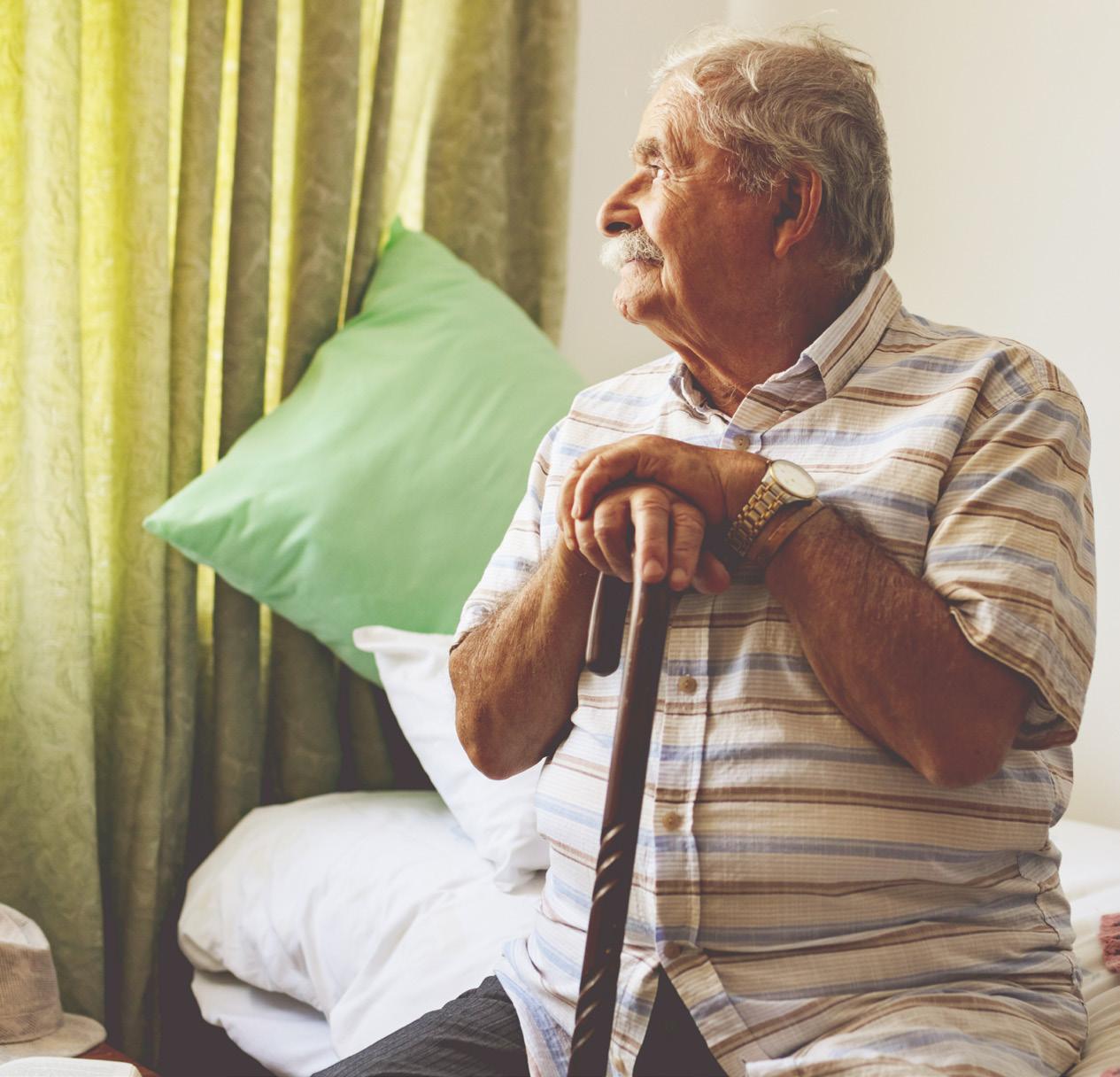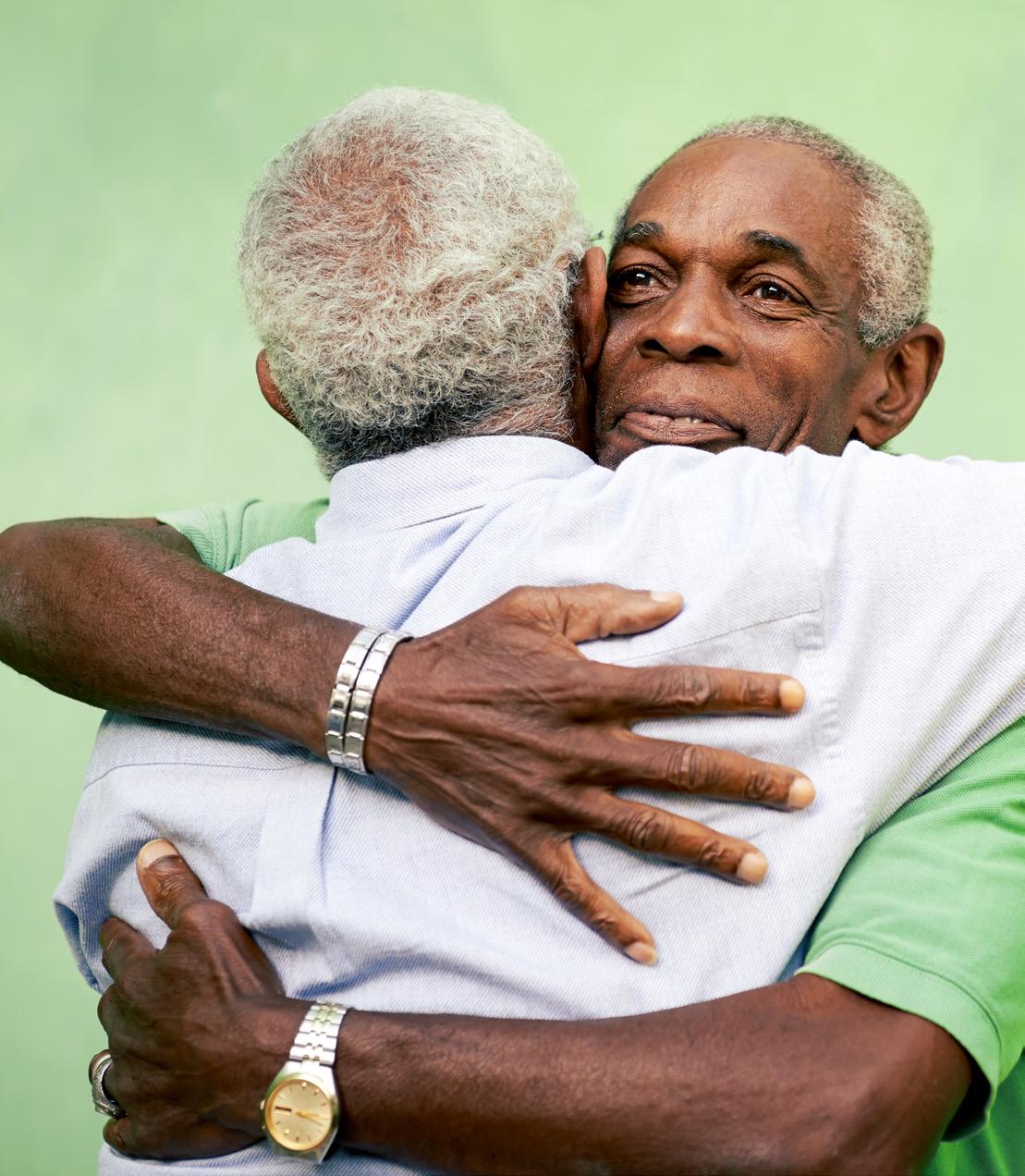Common myths about late-life depression
Myth: The last thing I need is another pill. Treatment of depression can actually decrease physical symptoms and may reduce overall medication use. Many antidepressant medications can be taken as a single pill, once per day. Your doctor will determine the best treatment options for you.
Myth: I can’t get treatment for depression right now. I have to focus on getting better from my medical problem. Depression may intensify other illnesses such as heart disease and stroke. If you are depressed and physically ill, one of the most important parts of getting better is to get help for your depression.
Myth: I don’t have time to deal with depression, because I need all my energy to care for my spouse (or parent, child).
If you are depressed, you need to get better in order to best care for your loved one.
About us
We are a nationwide leader in post-acute health care as well as specialized care management prior to acute episodes. Our wide variety of innovative services ranges from personal, non-medical care to skilled nursing, rehabilitative therapies, hospice, private duty, and care management.
RightPath® Program for Late-life Depression
We bring proven disease management1 to the comfort of home.
Our RightPath Program for Late-life Depression helps manage your condition so you may live life more fully.
Common myths about late-life depression
Myth: Most older people are depressed. The way I’m feeling is normal. While a short period (hours or days) of sadness may occur in many older people, depression lasting weeks or months only occurs in a small percentage. It is not a normal part of aging.
Myth: Of course I’m depressed. Wouldn’t you be if you were sick (or disabled)?
Although older people with chronic illness and disability are more likely to be depressed, depression is not something you must accept as part of your illness. The good news is that both ill people and well people may be treated for depression.
Myth: I can pull myself (or my spouse) out of it.
People can often overcome brief periods of low mood or sadness on their own. However, clinical depression or major depression requires professional help.
www.accentcare.com www.accentcare.com
Myth: I’m too old to change. Late-life depression is treatable in most patients. The likelihood of responding to treatment does not appear to decrease with age.

What may trigger late-life depression?
Patients with late-life depression are less likely to have a history of depression than younger patients. Late-life depression is often triggered by life situations, such as:

• Recent loss of spouse, a loved one, or a friend

• Recent diagnosis of an illness
• Declining health
• Changes in living arrangements
• Inability to care for self
• Social isolation
What is late-life depression?
All people experience sad feelings at one time or another. However, if you have a persistent sad mood, loss of interest or difficulty functioning in relationships for more than two weeks, you may have clinical depression. When clinical depression occurs for the first time in people 65 years or older, it is known as late-life depression.
What are symptoms of late-life depression?
In late-life depression, a sad or depressed mood may not be the most noticeable symptom. You may have a combination of the following:
• Significant decrease or increase in appetite and/or weight
• Frequent sleep issues: insomnia (difficulty sleeping) or excess sleep
• Nervousness or anxiety
• Slowing down (noticeable by others)
• Loss of energy
• Feelings of worthlessness or inappropriate guilt
• Reduced ability to think or concentrate, or indecisiveness
• Repeated thoughts of death or suicide
RightPath Program for Late-life Depression.
RightPath is a step-by-step plan based on expert clinical guidelines, your physician's orders, and your personal needs. Let's work together to manage your depression and optimize your health at home.
The right formula for your late-life depression care at home.
Fewer symptoms, fuller life.
Our RightPath Program at a glance
SKILL
An experienced team for quality care
• Behavioral health nursing program with trained nurses who specialize in depression management
• Emphasis on cognitive behavior therapy, problem-solving therapy and support therapy
SUPPORT
Help for better day-to-day health
• Medication education
• Self-care management strategies
• Psychological counseling/grief therapy
SERVICE
Special attention to your personal needs
• Customizable care plan for symptom management
Positive outcomes are among the many reasons patients choose us.
A greater percentage of patients show reduced symptoms of depression when enrolled in our proprietary RightPath Program for Late-life Depression, versus the overall average for all home health agencies.
Percentage of patients showing reduced depression symptoms2
That’s why we created the RightPath Program for Late-life Depression to help you in managing your depression.
• Frequent communication with you, your family, and your physician
